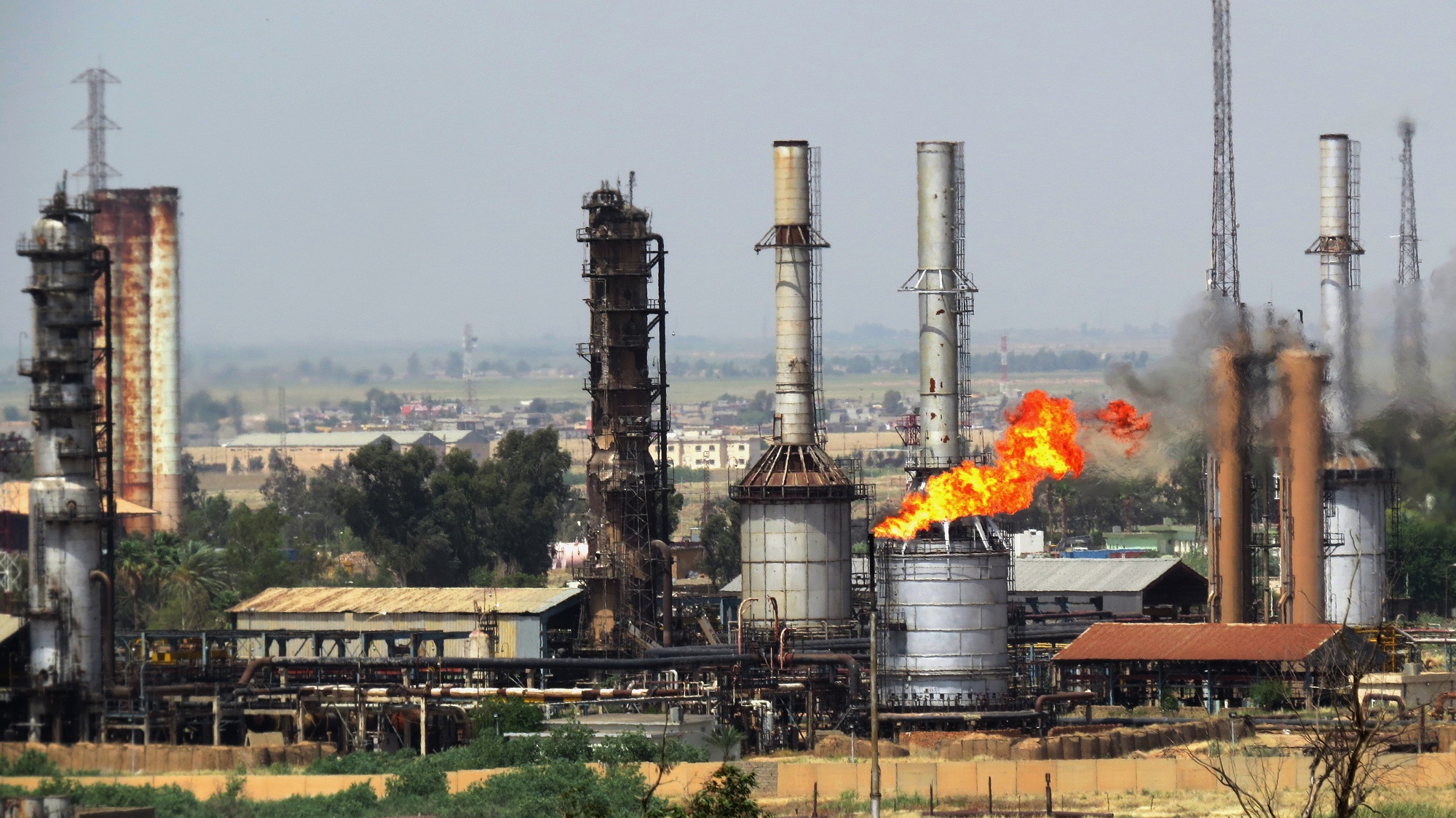Export of Kirkuk oil fields has flourished in 2021 compared to last year as figures by Iraqi ministry of oil shows.
In February 2021, Kirkuk has produced about 3.8 million barrels for $56/barrel topping up almost $213 million to Iraq’s national revenues while in Janurary it has produced only 3m barell/day of crude oil, barrel per $53.
Early 2020, Kirkuk was exporting only 1.1 million barrels a month peaked to almost 4M last February exported to the Turkish Mediterranean port of Ceyhan by a pipeline crossing Iraqi Kurdistan.
From July 2017 to first quarter of 2019, oil exports from the five major oil fields in Kirkuk stopped due to a standoff between the Iraqi government and Kurdistan regional government KRG.
The two major Kirkuk oil fields, Havana and Bai Hassan were under the control of the KRG which exported 250 thousand barrels of oil per day from the two fields.
Since the withdrawal of Kurdish forces end of 2017 in Kirkuk, the federal government has controlled Kirkuk oil fields which are Havana, Bai Hassan, Khabaza, Jambor and Qubai Baba.
Iraq’s oil export has dropped from about 89M barells in last Janurary for $4.7 billions to about 83 M in February 2021 for $5 billions, State Oil Marketing Organization SOMO, an Iraqi state body marekting Iraq oil said.
In February Iraq has prodcued 2.96 million barrels a day while in Janurary it was 2.868.
Kirkuk and other disputed areas came under the control of federal government through a military operation in 2017 which reimposed federal authority and forced Kurdish forces to withdraw from the areas.
Iraq's economy heavily relies on the exports of crude oil which makes over 90% of the country's total revenues.





